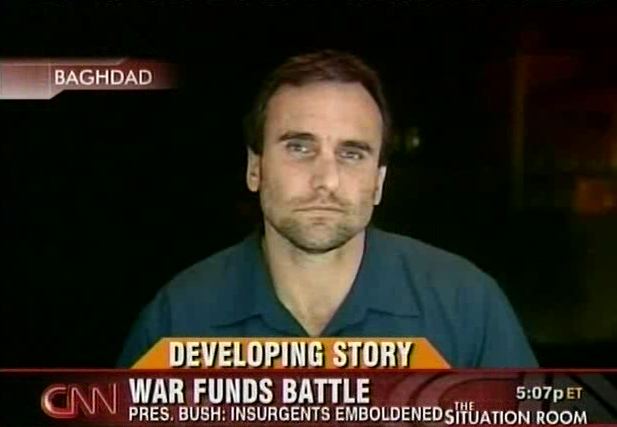TSR: "America does not have one rock-solid strategy"

Click photo to play
Length: 3:33
SUZANNE MALVEAUX: And as we look at what impact this war funds battle might have on the troops, what effect might it have on the efforts to calm Iraq's cauldron of violence?
Moments ago, I spoke with CNN's Michael Ware.
He's in Baghdad, and he's covered this war since the very beginning.
Thanks for joining us, Michael.
Now, obviously Congress, as well as the administration, they're at loggerheads over whether or not the troops should withdraw, whether or not they should withdraw funds, as well.
And we've heard from -- from Vice President Cheney, and President Bush, saying look, this emboldens the insurgents here.
Do they pay any attention to this at all? Is that even true?
MICHAEL WARE, CNN CORRESPONDENT: Well, what I can tell you from the outset, Suzanne, is that, say, for example, by some bizarre political miracle, Congress was able to impose a real timeline, a real deadline on the U.S. presence here or on the funding for the war here. Now that absolutely would play completely into the hands of America's identified enemies, al Qaeda and Iran. That would be handing the entire advantage to them. That's why that can never really happen.
But in terms of the broader debate, in terms of, you know, taking the temperature of the American mood, of the American public, adhering to what's going on in Congress, looking at the Congressional elections, absolutely do the insurgents, do al Qaeda and does Iran and its proxy organizations in Iraq pay attention?
Yes, for sure. I mean they know that the most certain way to strike at their enemy is to strike at his support back home. And, indeed, they monitor these things. They know that, you know, what's happening in D.C. doesn't really relate to the ground. This is just political artifice.
Nonetheless, it does tell them about the pressure points to apply. And we saw from 2003 the Baathist insurgents saying from the beginning this war will not be won on the battlefield, it will be won on that -- pointing to a TV screen.
That's where this war will be won -- Suzanne.
MALVEAUX: Do you think the president, as well as the vice president, then, are actually correct -- they're accurate -- when they describe to the American people, saying, look, all of this infighting is weakening our position overseas, specifically in Baghdad?
WARE: Oh, absolutely. I mean it's very clear -- it's been evident since the mid-term elections that America is in a period of strategic malaise. Essentially, America does not have one rock-solid strategy. There's no one clear way forward to U.S. victory.
There's a lot of infighting. There's a lot of debate. Now in a pluralist democracy, that's seen as a healthy thing.
But when you're fighting a war, you want a clear and concise direction. You want everyone on the same page and you want your enemy to know that you shalt not falter.
Now, that's precisely the opposite message that America is sending to its opponents here in the region. And, quite frankly, that's why America's rivals in the Middle East are becoming so much stronger and the concept of American empire or American presence is becoming so much weaker.
MALVEAUX: Thank you very much, Michael Ware, from Baghdad.
